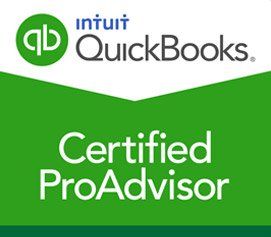Business Meal Deductions for 2020 and 2021
It has been said that a business only lasts as long as its network. Taking out your customers, vendors, or employees for a meal every now and then is a great way to build and refine that network. The IRS considers meals and entertainment purchased for such business purposes to be legitimate tax deductions. There are limits to what are considered business meal deductions, however.

What Are Business Meal Deductions?
Business meal deductions are considered “deductible business expenses.” Business owners can deduct such expenses at a dollar-for-dollar rate. For every dollar that you spend, you can subtract that amount from your taxable business income. In the case of business meal deductions, meals are usually deductible for up to 50 percent of the cost. This limit applies to both your business and your employees.
The rules on what constitutes a business meal deductible are as follows:
- The expense is ordinary and necessary
- The meals are not extravagant
- You or an employee must be present at the serving of the meal
- The meal must be provided to a business associate (a customer, client, supplier, employee, partner, or advisor) with whom you intend to engage in business with.
Examples of Business Meal Deductions
Business meeting meals which include business stakeholders are deductible. These stakeholders include employees, stockholders, agents, and directors. The meal must be reasonably linked to a business function, such as an office meeting or sale meeting, to qualify for this category.
Business travel meals are a bit more fickle. Any meal related to the business function of the trip can be deducted from taxes. However, because business trips often include personal time and activities, the expense will also be considered personal for that length of time. Thus, it is non-deductible.
Reimbursed business meal deductions can be a little more confusing. For example, meal expenses which were incurred by an employee during a business trip, even after being fully reimbursed by the business, are still only deductible at 50 percent. In the case of reimbursing an independent contractor, the business meal will be added to their 1099 income.
Tax professionals which specialize in business taxes are more knowledgeable of the red tape around deductible business meal expenses. To learn how to best maximize your deduction, set up a free one hour consultation with a tax pro.
How Does Entertainment Affect Your Deduction?
In previous years, entertainment expenses were considered to be just as deductible as a business meal with a client. This all changed with the 2018 Tax Cuts and Jobs Act, which cut entertaining clients from being 50 percent deductible to 0 percent. If you take a client or employee to an entertainment venue, then only the meal will be considered a deductible expense. That meal should be charged separately from any activities.
For example, taking a client to a sporting event would allow you to expense the food and beverages sold at the venue. The amount charged on the bill must reflect the usual selling cost of those items. At the very least, it should offer a reasonable value for them.
Another stipulation of the 2018 TCJA was more clarification on the parameters of what is considered a business meal and entertainment event. If you pay for your client’s night out, but you don’t actually go with him or her, then the meals are nondeductible. If you take a client to a restaurant and bring friends and family, then the cost of the meal for those additional people are nondeductible. The client’s bill, however, can be written off.
The Difference Between 2020 and 2021
As a response to the COVID-19 pandemic, the Consolidated Appropriations Act of 2021 (CAA) was signed into law on December 27, 2020. The CAA includes a variety of provisions which may benefit your business greatly. Because each business is unique, it is highly encouraged that you speak with a tax professional before making any decisions on these tax deductions. Yoke Tax professionals are always available for your tax needs.
What makes CAA notable is its deduction of “food or beverages provided by a restaurant.” The multitude of stay at home orders, correlating with the rise of food delivery through services such as Uber Eats or GrubHub, led the federal government to make an exception on the deductibility of takeout and delivery meals. This does not mean, however, that the rules around business meals deductions have changed.
In addition, a new notice by the Treasury Department and the Internal Revenue Service has added a temporary exception on food and beverages from restaurants. Beginning January 1 to December 31, 2021, businesses can claim 100 percent of meal expenses to restaurants. This holds so long as the aforementioned business meal deduction rules are acknowledged and followed.
How Do You Prove a Business Meal Expense?
The IRS requires adequate evidence of a business meal expense. A receipt must be provided. It must include the name and address of the restaurant or entertainment venue, the date of the meal, and the amount spent on the meal. Of the people served, their names and their relationship to your business must be cited at the bottom of the receipt.
If you do not have adequate evidence for a business meal deductible, you may need to provide a written statement and supporting evidence. For example, having a history of taking employees out for a team building meal each month may not require a receipt for each meal throughout the tax year.
As always, it is better to consult a tax professional before making any final decisions.
Summary of the Most Common Business Meal Deductibles for 2020 and 2021
Due to the COVID-19 pandemic, the IRS has been more lenient with the amounts which can be claimed for a business meal deductible. Be sure to take advantage of these new opportunities! Yoke Tax can help you maximize your deduction in just three days.
| Type of Expense | 2020 | 2021 |
|---|---|---|
| Entertaining clients (concerts, sporting events, etc.) | 0% deductible | 0% deductible |
| Business meals at entertainment venues | 50% deductible | 100% deductible |
| Business meals with clients | 50% deductible | 100% deductible |
| Office snacks and meals | 50% deductible | 100% deductible |
| Company-wide party | 100% deductible | 100% deductible |
| Meals & entertainment provided to employees | 100% deductible | 100% deductible |



